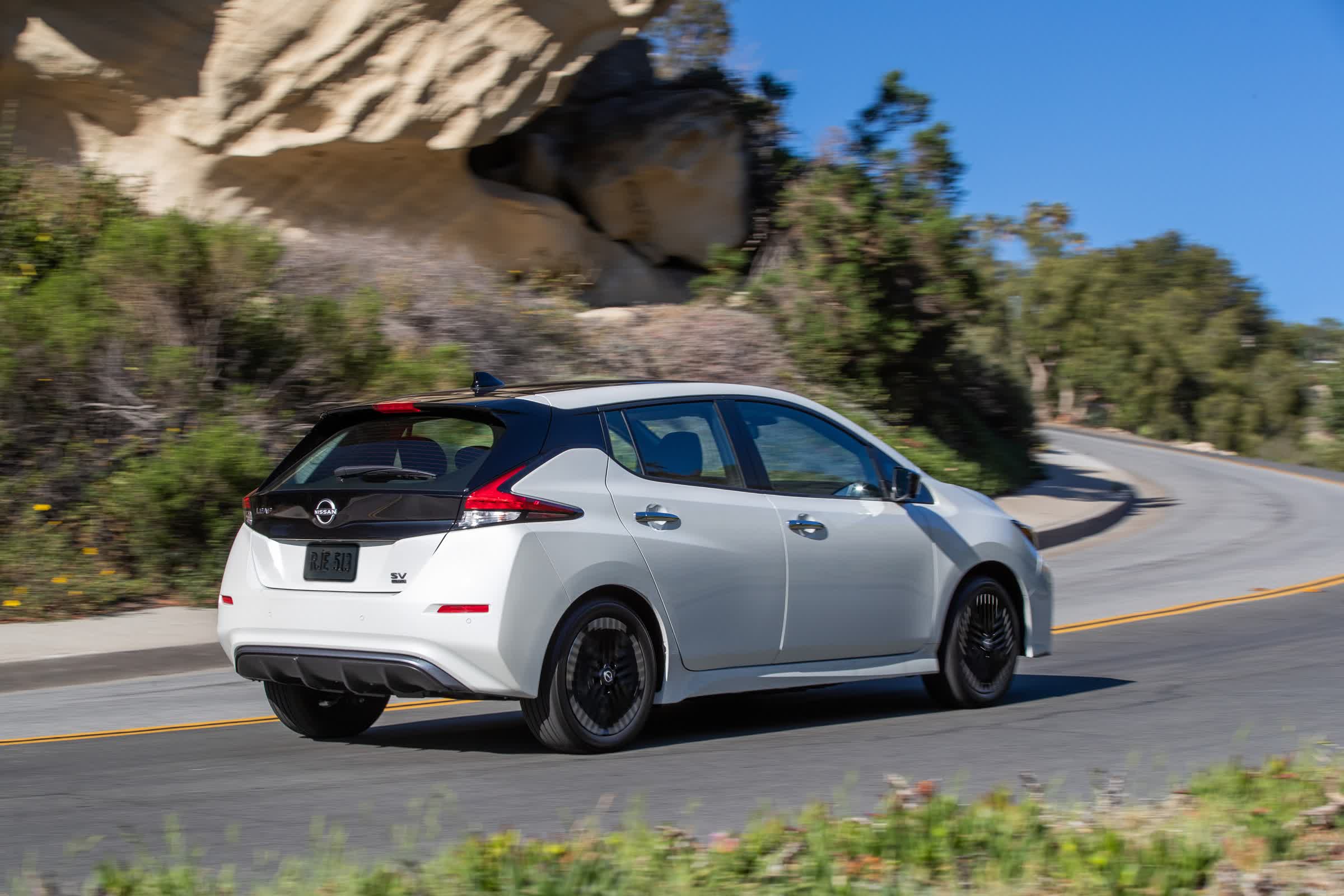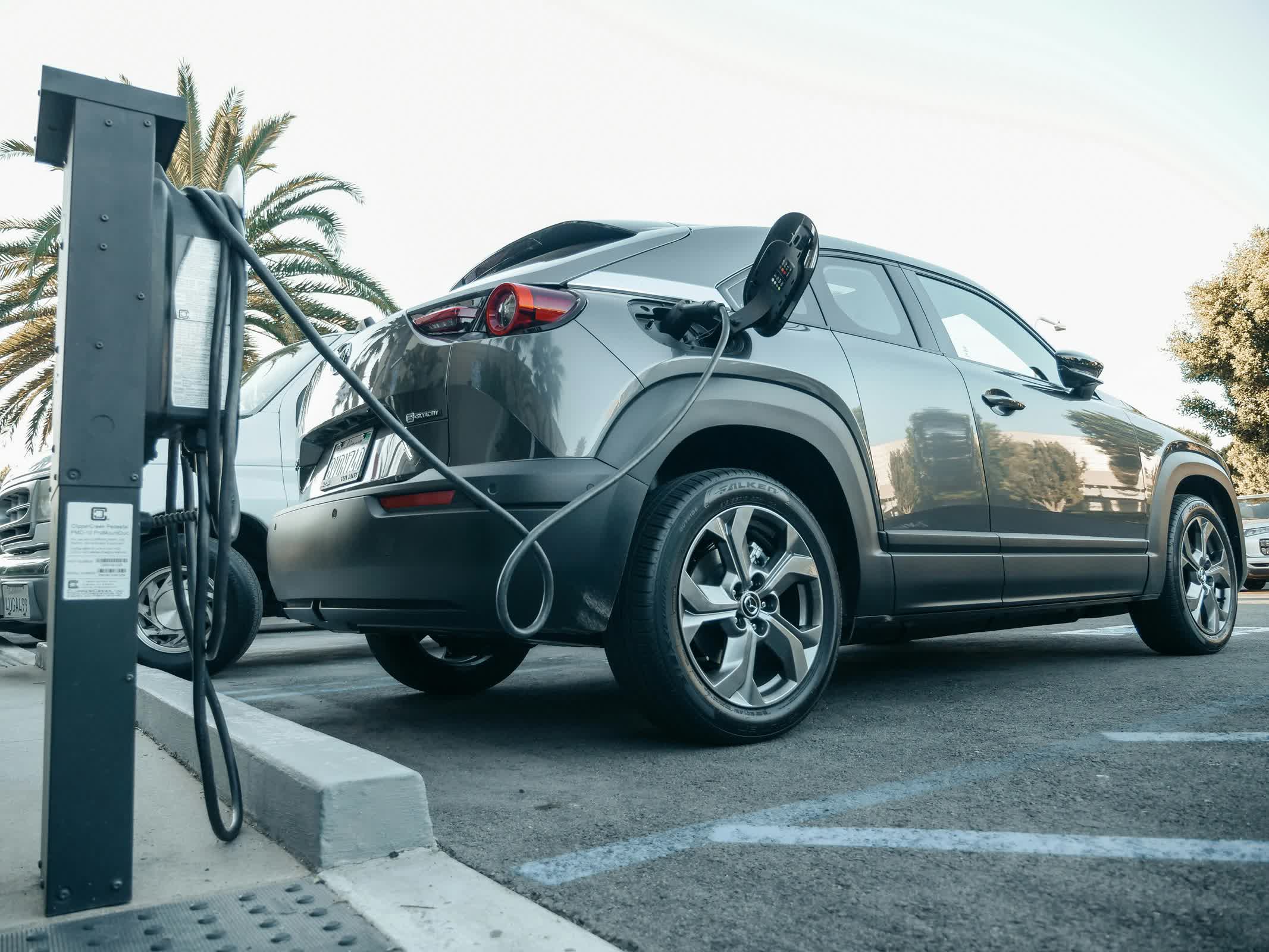Why it matters: Vermont has a problem with flooding, having experienced many devastating events in its history. Federal and state resources have been deployed to help residents in response, but after the latest flood event, the state is trying something new: incentives to switch to an EV if a car was damaged by the rising waters. Vermont is the perfect petri dish to try out this incentive too: EV sales have been gaining momentum in the state over the last few years, and it boasts the highest number of EV charging stations per capita in the US.

Vermont has been devastated by flooding not once but twice in the last year, most recently by remnants from Hurricane Beryl, causing significant damage to property, at least two deaths, and untold misery. Now, the state's Agency of Transportation is using the opportunity to get Vermonters to transition to a clean energy vehicle if their gas-powered car had to be scrapped because it was flooded.
Income-eligible Vermont residents can get up to $6,000 for new plug-in electric vehicles, up to $5,000 for scrapping a gas- or diesel-powered car in exchange for a used EV, and up to $5,000 for a qualifying high-efficiency used vehicle. If you add on the federal tax credit for electric vehicles, that comes to a potential savings of up to $18,500.
"This program will help those whose vehicles were flooded upgrade to a new vehicle that's better for the environment," said Governor Phil Scott.
Here is a breakdown of the math.
The state's Replace Your Ride Program offers up to $5,000 for swapping a gas- or diesel-powered car with a used EV. For a new or leased EV, the state will add $1,000 to that tally, bringing the total up to $6,000 for Vermont residents who want to replace their flood-damaged cars.
Another state program, MileageSmart, which offers up to 25% of a vehicle's price when switching to a high-efficiency used vehicle, will now give $5,000 to Vermonters who want to replace a flood-damaged car with a more environmentally friendly used vehicle. The state defines a high-efficiency vehicle as having an efficiency rating of 40 miles per gallon or higher, and the category includes hybrids, plug-in hybrids and all-electric cars.
Participants can combine the incentives in these programs to get $11,000 off the price of a new EV and up to $10,000 off the price of a used EV. Bundling the state incentives with the $7,500 federal tax credit results in savings of up to $18,500 for buying or leasing a new EV in Vermont.

It is unclear how many vehicles were damaged in the recent flooding, but EVs have been gaining significant traction in Vermont. As of July 2023, there were over 10,000 electric vehicles registered in the state, with the Nissan LEAF being the most popular model. This number represents a substantial increase from the previous year, where the number of EVs on Vermont's roads nearly doubled from 6,000 to 10,000.
Vermont is also making strides in an area that is of great concern to potential EV buyers, namely EV infrastructure. It boasts the highest number of EV charging stations per capita in the US, with 396 public charging stations, including 53 fast chargers. That said, some parts of the state still lack adequate charging facilities, which presents a challenge for residents without home charging.
It should be obvious by now that the state has ambitious goals for EV adoption, aiming for 25% of all registered vehicles to be powered by renewable sources by 2030. To meet this target, Vermont needs to have 27,000 plug-in electric vehicles by 2025 and 126,000 by 2030. These new incentives will likely help those numbers along.
Vermont flood victims can get up to $18,500 in credits to replace damaged cars with EVs